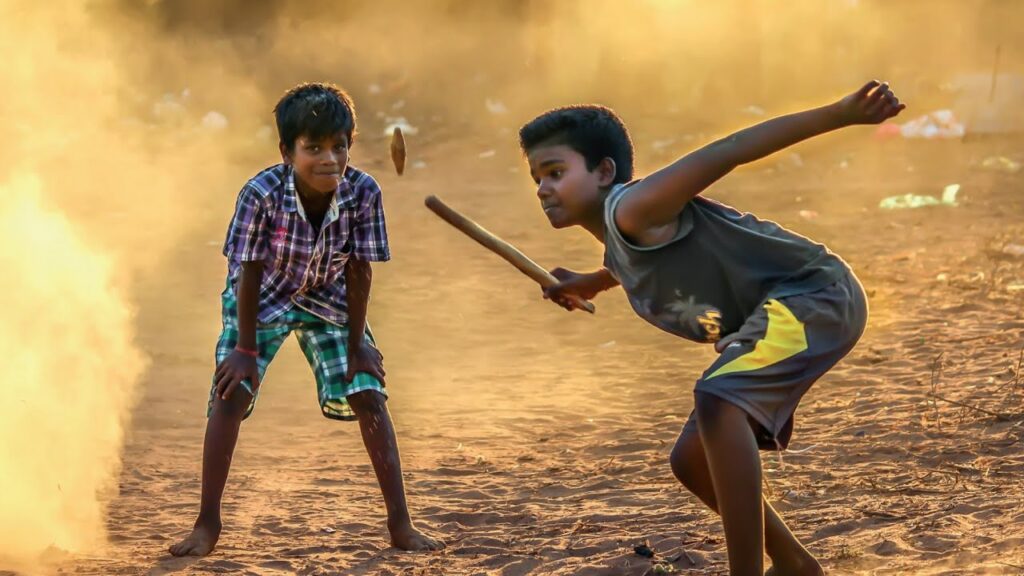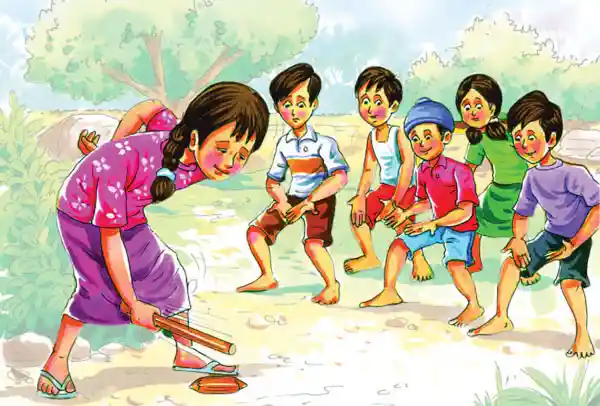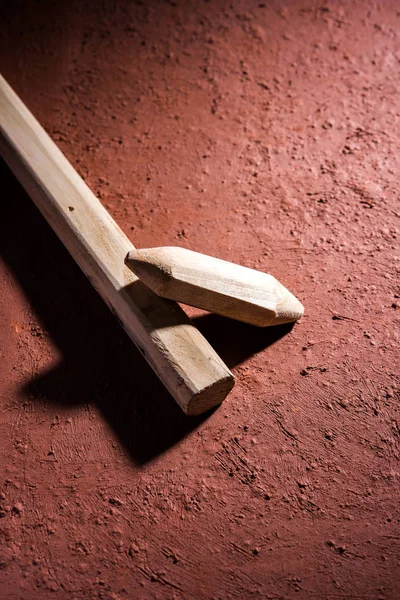Gilli Danda
Gilli Danda, a traditional Indian game, is believed to have originated during the Mauryan era several centuries ago and remains a popular pastime across various regions of India. Known by different names in different regions, such as Danguli in Bangladesh, Dandi-Biyo in Nepal, Lappa-Dungi in Afghanistan, and Pullu in Sri Lanka, the game also has variations like Billarda in Spain, Lippa in Italy, and Pee-Wee in the United States.

Image Source : Traditionalsports.org
The game is deeply rooted in the country’s cultural history and its simplicity contributes to its widespread appeal across age groups. It requires minimal equipment—a long wooden stick called the “gilli” and a shorter cylindrical stick known as the “danda”—making it easily accessible.
In gameplay, the danda is used to strike the gilli, launching it into the air. The striker’s objective is to hit the gilli as far as possible, then run to touch a predetermined point before the opposing team retrieves the gilli and tries to tag the striker.
This game not only tests physical skill but also demands strategy, coordination, and teamwork. Renowned Hindi writer Premchand explored the game in his short story “Gilli-Danda” as a means to delve into the stark differences between old and modern times and to depict caste inequality in India.

Image Courtesy: NCERT
Gilli Danda holds historical and cultural significance as a traditional pastime passed down through generations. It reflects the simplicity of life in ancient India and the joy derived from communal outdoor activities. Despite the prevalence of modern games and technology, Gilli Danda continues to occupy a special place in the hearts of those who appreciate its cultural heritage and the friendly competition it embodies.

Image Courtesy: depositphotos.com
